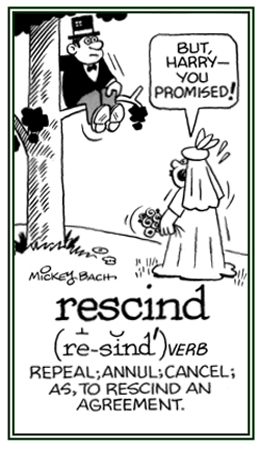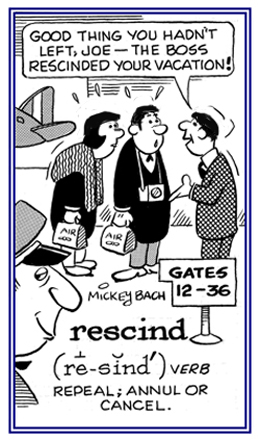scind-, scis-
(Latin: to rend, to tear, to divide)
The document abscinds all the extra perks that the politicians were getting.
The landslide abscinded the trail and the hikers were unable to complete their trip.
Stephanie and Carolyn will be abscinding their relationship with the factory when the last order has been received.
In the statistics class, students were asked to explain the abscissa on the graph.
The various abscissas on the chart were highlighted in different colors.
The unexpected abscission of the speeches at the rally were welcomed by the crowd.
2. In botany, the normal separation of flowers, fruit, and leaves from plants or the natural process by which leaves or other parts are shed from a plant: In the fall, people can see the abscissions of the leaves as they fall from the trees and are scattered on the ground.The abscission zone is a layer of weak, thin-walled cells that form across the base of a plant part where the break eventually occurs.
2. To cut out; to excise.
3. Etymology: from Latin exscindere, "to cut out, to excise"; from ex-, "out" + scindere, "to cut."
Kelsey is a recent university graduate who made a recent change in where she is living.
Some people resent being told that they are too old to continue working.
2. To end a law, contract, agreement, etc. by officially stating that something is no longer valid: The company decided to rescind its offer of pay raises because of the poor economic situation.
At the recent town hall meeting, Bill Williams asked the town to rescind the tax bill on his factory. The townspeople called out: No! No! We resent that! It's unfair! Unfair!!
2. To declare a decision or enactment null and void, or to invalidate an act, a measure, etc. by a later action or a higher authority: The company rescinded its decision to raise wages because of the poor sales results from the year before.
3. Etymology: from Latin rescindere, "to cut off"; from re-, "back" + scindere, "to cut, to split."


Go to this Word A Day Revisited Index
so you can see more of Mickey Bach's cartoons.
2. Etymology: from Latin resciss- from rescindere, "to cancel, to repeal"; from re-, "back" + scindere, "to cut, to split."
